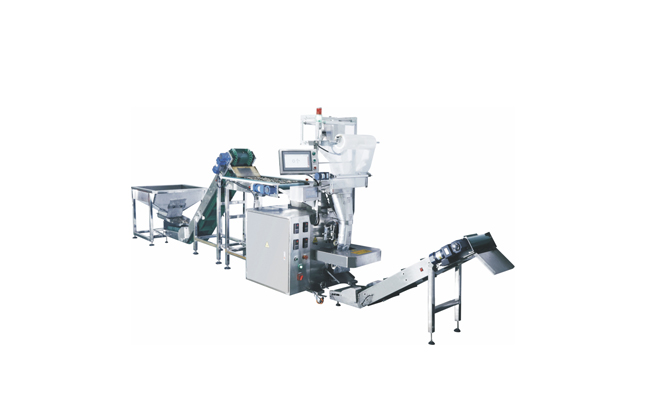
Date | 2023-05-14 14:17:19
Machinery packaging refers to the process of packing and protecting industrial machines for transportation and storage. It involves the use of specialized materials and techniques to ensure that the machines arrive at their destination in good condition and ready for use. In this article, we will discuss the importance of machinery packaging, the different types of packaging materials, and the factors to consider when choosing packaging solutions.
Importance of Machinery Packaging
Machinery is a significant investment for any company, and ensuring that it is transported and stored properly is crucial to its longevity and performance. Machinery packaging provides protection against external factors such as moisture, dust, and temperature fluctuations, which can damage or compromise the integrity of the machines. Proper packaging also ensures that the machines remain stable during transportation, reducing the risk of damage from vibrations and shocks.
Types of Packaging Materials
There are several types of packaging materials used in machinery packaging. One of the most common materials is wood, which is used to create wooden crates, skids, and pallets. Wood is a durable and versatile material that can be customized to fit different machine sizes and shapes.
Another common packaging material is corrugated cardboard. This material is lightweight, cost-effective, and recyclable, making it an eco-friendly option for machinery packaging. However, it is not as durable as wood and may not provide adequate protection for heavy or fragile machines.
Foam packaging is another popular option for protecting machinery during transportation. It is lightweight and can be molded to fit the shape of the machine, providing a cushioning effect that absorbs shocks and vibrations. Foam packaging is commonly used for delicate and high-value machines, such as electronics and medical equipment.
Factors to Consider When Choosing Packaging Solutions
When choosing machinery packaging solutions, several factors need to be considered. These include the weight and dimensions of the machine, the type of transportation, and the expected environmental conditions during transportation and storage.
For heavy machines, wooden crates and skids are the best options as they provide the necessary structural support. For delicate machines, foam packaging is recommended to absorb shocks and vibrations. When transporting machinery by sea, moisture-resistant packaging materials such as plastic wrap or moisture-resistant wooden crates are required to protect against seawater damage.
In conclusion, machinery packaging is an essential part of the transportation and storage process for industrial machines. The packaging materials used must provide adequate protection against external factors, such as moisture, dust, and temperature fluctuations, and must be customized to fit the size and shape of the machine. By considering the weight and dimensions of the machine, the type of transportation, and the expected environmental conditions, companies can choose the right packaging solutions to ensure that their machinery arrives at its destination in good condition.In addition to the above factors, it is also important to consider the cost and environmental impact of the packaging materials used. While wood is a durable and customizable option, it may not be the most environmentally friendly choice due to deforestation concerns. On the other hand, corrugated cardboard and foam packaging are more eco-friendly options but may not provide adequate protection for heavy or fragile machines.
To strike a balance between cost, environmental impact, and effectiveness, some companies may opt for hybrid packaging solutions that combine different materials. For example, a machine may be packed in a wooden crate with foam cushioning or corrugated cardboard inserts to provide additional protection.
It is also important to ensure that the packaging materials used comply with regulatory requirements, such as safety and hazardous materials regulations. Failure to comply with these regulations may result in penalties, delays in transportation, and damage to the machines.
Conclusion
Machinery packaging is a crucial aspect of the transportation and storage process for industrial machines. The right packaging solutions must be chosen to ensure that the machines arrive at their destination in good condition and ready for use. Companies must consider the weight and dimensions of the machines, the type of transportation, the expected environmental conditions, and the cost and environmental impact of the packaging materials used. By choosing the right packaging solutions, companies can protect their machinery investment, reduce transportation costs, and contribute to a more sustainable future.
